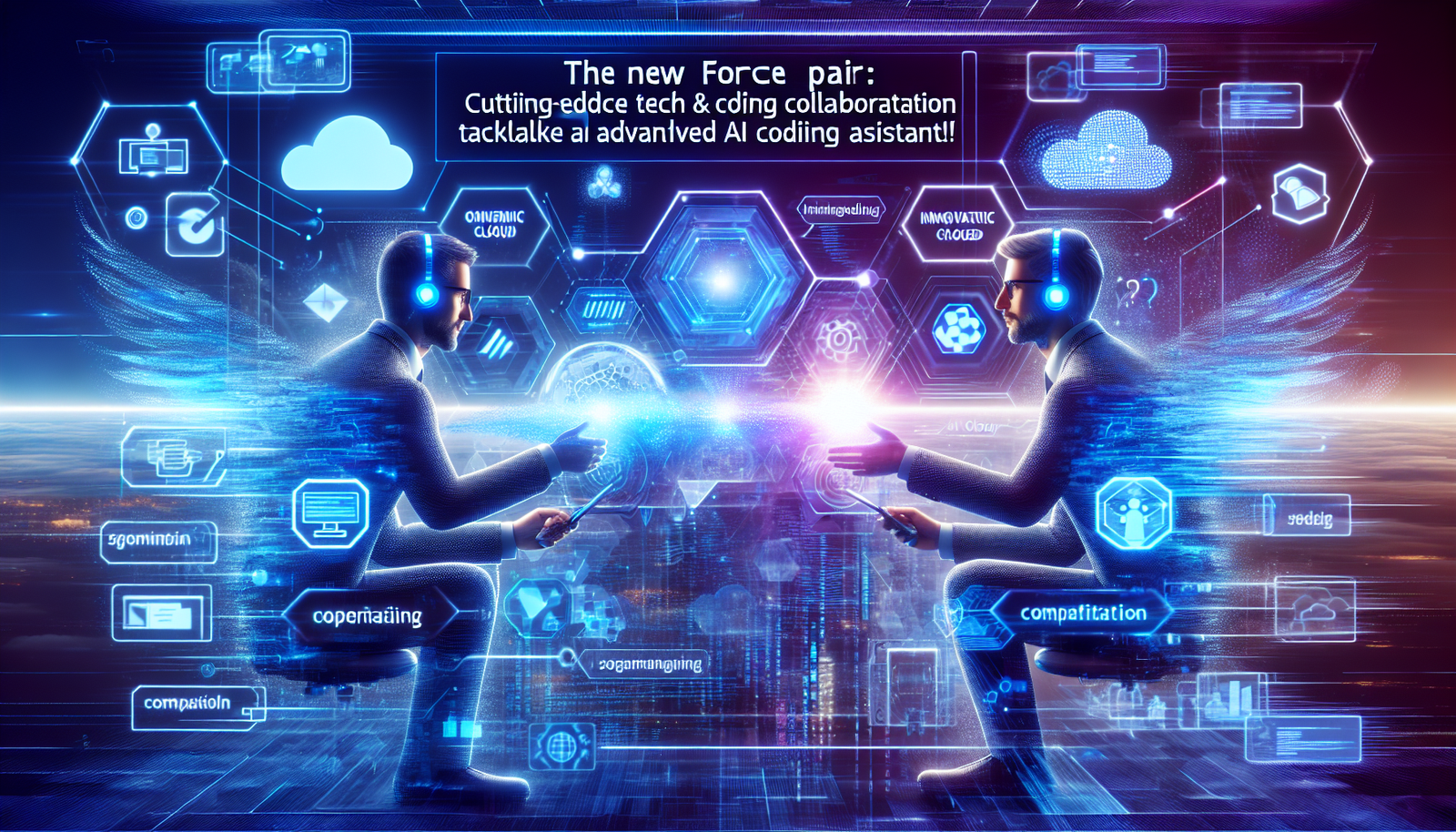Strategic Collaboration between AWS and GitLab
AWS and GitLab unveil an innovative synergy aimed at providing an integrated offering that combines the GitLab AI Duo assistant with Amazon’s autonomous agents, called Q. This initiative represents a direct response to the growing use of GitHub Copilot, a generative artificial intelligence tool that has captivated many developers. With 30 million registered users, GitLab stands as a reference in the field of DevSecOps, not only for enterprises but also for the public sector.
Encouraging Adoption by Developers
This partnership focuses on improving development workflows by offering advanced solutions. Developers will benefit from the integration of Amazon’s AI agents within the GitLab ecosystem, thereby facilitating the automation of daily tasks. Code creation for merge requests can thus be completed in just a few minutes, making development processes more agile and efficient.
A Streamlined and Optimized Ecosystem
The increasing complexity of development tools is a major challenge for teams. A recent study by GitLab reveals that 54% of developers use up to 14 different tools for software development. This partnership aims to reduce this number by unifying the tools. This integration seeks to simplify the developer experience and prevent fragmentation in the project lifecycle.
Use of Autonomous Agents
The offering is currently available in preview for GitLab Ultimate customers using self-managed installations. Access to autonomous agents allows for significant simplification of development processes. Real-time feedback will act as catalysts for accelerating collaborative work, making iterations much more effective.
Advanced Quality Assurance Practices
Amazon’s Q agents integrate AI-driven analytics, providing real-time assessments of code quality and security. This allows development teams to apply rigorous and consistent quality assurance practices throughout their software development lifecycle. The automatic generation of unit tests for merge requests represents another significant advancement, alleviating the workload on developers.
Upgrade to Java 17
Another appealing aspect of this collaboration concerns the direct upgrade of Java 8 or 11 codebases to Java 17. This feature aims to enhance application security while eliminating technical debt. Ashley Kramer, Chief Marketing and Strategy Officer of GitLab, emphasizes that this approach provides a seamless route from code validation to production, wrapped in a secure and reliable environment.
Competitive Context with GitHub
In light of this advancement, GitHub must intensify efforts to maintain its dominant market position. Although the giant is backed by over 100 million developers, the emergence of new integrated solutions could soon shift the tide. GitHub recently showcased updates to its Copilot tool, but will this be enough to counter the strategic movement of AWS and GitLab?
Expanded Options for Developers with GitHub
GitHub has enhanced its capabilities with generative AI models from Anthropic and Google, allowing for increased flexibility. Users can now choose from AI systems like Anthropic’s Claude 3.5 or Google’s Gemini 1.5 Pro, offering a broader and more adaptable offering. Thus, developers are encouraged to leverage multiple tools to optimize their work.
Innovation with GitHub Spark
The recent introduction of GitHub Spark, a tool designed to create “micro-applications” using natural language, represents another attempt to reach users who are not familiar with programming. Nevertheless, the platform requires more substantial support from Microsoft, its owner, to truly leverage its potential.
Frequently Asked Questions
What is the main objective of the collaboration between AWS and GitLab?
This collaboration aims to integrate GitLab’s AI Duo assistant with Amazon’s Q autonomous agents, thereby improving the software development lifecycle for developer teams.
How does this integrated offering help developers on a daily basis?
It provides digital assistant tools that facilitate code generation, unit test optimization, and quality analysis, allowing developers to accelerate their workflows and further improve their projects.
What are the major features of the integration between AWS and GitLab?
Developers can benefit from autonomous code generation, real-time feedback on merge requests, and AI-driven analytics to ensure code quality and security.
Who can access the integrated offering provided by AWS and GitLab?
Currently, this offering is available in “preview” for GitLab Ultimate customers on Self-Managed, who can try these new features.
How is this collaboration a response to GitHub Copilot?
AWS and GitLab are partnering to create a competitive response to GitHub Copilot, providing innovative solutions that aim to enhance developer productivity using advanced AI technologies.
What are the advantages of using Amazon’s Q autonomous agents in GitLab?
Q autonomous agents simplify the development process, allow for quick generation of merge-ready code, and enhance quality practices through continuous analysis.
How can development teams benefit from a reduction in the tools used?
By consolidating tools within an integrated platform like that offered by AWS and GitLab, teams can reduce complexity and improve the efficiency of their development processes.
What real-time analytics are provided to ensure code quality?
AI-driven analytics include quality and security checks that help identify and correct potential issues before code is merged into the main project.
What are the implications of this collaboration for the security of developed applications?
Upgrading codebases to more secure versions (such as from Java 8 to Java 17) is part of the measures taken to improve the security and performance of applications developed on the platform.






